How does Saudi Arabia look for bright filmmaking horizons in the world?

In a situation where the filmmaking industry in the Middle East region is shedding its skin, Saudi Arabia is trying to use new policies to create clear horizons for itself in the field of seventh art and introduce its name in the cinema industry, but how is this process done?
Charso Press: According to Golf News; The published news about the ups and downs of the seventh art in the Middle East shows that the cinema industry in this region is in the process of shedding and the arrival of new players in this industry is not far from expected.
In this context, some critics and experts of the cinema industry believe that one of the names that will probably be heard soon in the cinema industry of the Middle East region is Saudi Arabia, because after the changes in the laws related to art, this country was able to make a new rail in this field and the seventh art of the global village. Its first station is the creation of suitable infrastructure for the activities of the world’s big and prestigious film production companies, and finally, the holding of various film festivals completes it.
According to these experts, an example of this positive trend in the Saudi film industry is the increase in box office revenues in the Middle East, which has increased to a certain extent thanks to the success of Saudi cinema, and the resumption of cinemas in this land can not only lead to the screening process, but also to the production of attractive films and series. to be of great help in the international market.
There were sparks of hope from 2012
Mahmoud Sabbagh, the well-known Saudi director, believes that now his country has entered the fifth year of dealing with cinema after the changes in its policy, the economy of cinema in the Middle East region continues its upward trend, and the young generation of this country can guarantee the continuation of this trend. , because the cinema industry needs creativity and there is a lot of talent in this country for which the authorities can prepare suitable programs and the glimmers of hope appeared in the Saudi film industry since 2012. Because this date represents Haifa al-Mansour’s film “Wajda” as the first film produced in Saudi Arabia.
According to Sabbagh, the process of creating motivation for Saudi cinematographers continued with the release of the well-made and brave comedy “Meeting the Pond with the Pond” by a young director named Mahmoud Sabbagh, who was not even 33 years old, and finally, the continuation of the activity of Saudi cinemas was able to guarantee the entry of cinematographers. a young man from this country to enter the field of cinema, and finally, Jeddah with the Red Sea Festival was a sign of confirmation of the government’s motivation to raise the name of Saudi Arabia in the international film industry.
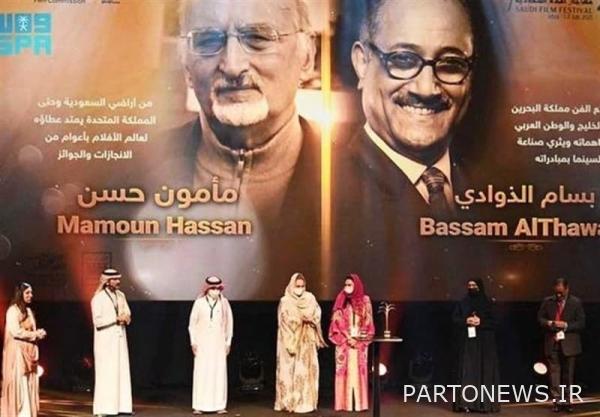
This Saudi director says about the process of recent developments: No one ever thought that the process of changes would be so long and what was the story that Saudi cinema experienced such a process, but we must not forget that cinema has created an environment where all rules change and a legacy for future generations. It turns out that it will have brilliant results. Because cinema is the initiator of many social and cultural movements around the world, and Saudi Arabia is no exception.
Walaa Bahefzallah, a graduate of the film school from Egypt, believes about the process of changes in the Saudi film industry, with the change of generation in Saudi Arabia and also the change of cultural policies in this country, the process of forming a new current in Saudi cinema was created.
In this context, Bafuzullah emphasized: In 2013, Rose Panthera Company started its work as an experiment in the field of film production and distribution in Saudi Arabia, which at first glance had no future for this company, precisely because of the change of generation and the changing taste of cinema audiences in Saudi Arabia. And of course, the new cultural policies of the government suddenly made this company rise rapidly.
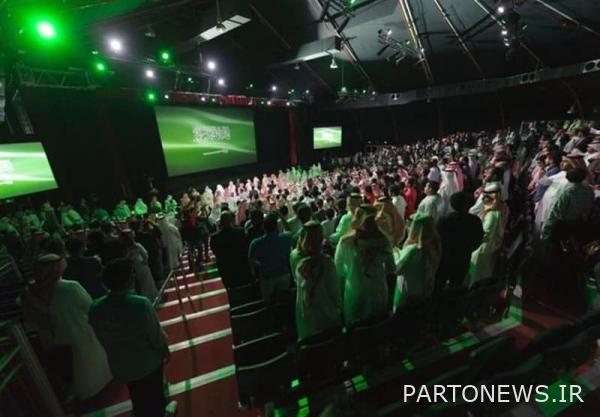
He stated about the speed of growth of this company: At the beginning of the work, maybe one or two films were available to the company every year, but taking into account the arrival of new talents in the Saudi film production industry, film production sped up, and works such as “Kandahar” along with 5 other products The loan form was provided to the company to be distributed in the international film market.
This female scholar of the cinema industry believes that although cinema has entered the Saudi society late, but the new cultural policies of the government, along with the country’s strong serial production background, can be the answer to the backwardness, and the strength of the Saudi cinema is the lack of formation of the society’s taste due to the past policies, and it should not be included in it. Let’s stay trapped.
Bafezullah also emphasized: The recent performance of the Saudi cinema industry shows that a new era is ahead of the country’s film industry, which can create a significant leap not only in the geography of Saudi Arabia but also in the Middle East region, with the creative minds of the young generation, as an example of this process is the production of 31 films. cinema in Saudi Arabia in 5 years after the ban on cinema was lifted in this country.
Inflow of dollars instead of outflow of currency
According to the General Commission of Audiovisual Media, these films made in Saudi Arabia include the family drama “40 Years and One Night”, the football comedy “Abtal” (Heroes), the real animation “Shihaneh” and the animation “Masamir”.
Experts also believe about the growing trend of the Saudi film industry that before the new cultural policies of the government, some citizens of the country used to travel to neighboring countries to see popular films, but after the change of policies, not only this group does not leave the country to see films, but many tourists Foreigners come to Saudi Arabia to watch movies of the day in high-quality and high-standard audio and video theaters.

This group emphasizes that the provision of special cinema towns with complete and updated facilities and equipment in the field of the cinema industry, although it does not seem to have an effect on the audience’s visit to the films on the screen, but the main point here is that the arrival of film crews and film producers in Saudi Arabia is a factor for this. The country has provided that instead of the dollar leaving the country, it has provided the opportunity for the dollar to enter Saudi culture and art, and an example of this trend is the reverse movement of the Saudi box office compared to other parts of the world, because just when box offices in other parts of the world are doing well. We see that the box office of the Middle East and North Africa is going through an upward trend at a very high speed, which is under the shadow of the expansion of Saudi cinemas.
Of course, according to critics and activists of the cinema field, the Saudi market is still a very virgin market for the seventh art and cinema activists, because surveys show that, for example, when Tom Cruise’s new movie called “Top Gun 2” was released, only 1.2 million of the country’s population of about 36 million people came to watch the movie. They have prepared a ticket that indicates that this market is still pristine and untouched.
Faris Godus, director and assistant writer of “Kitab Khurshid” – “Kitab Khurshid”, a product of the Qudous Brothers company, funded by the Red Sea Film Festival, was one of the first Saudi films to be shown in commercial cinemas. This film was recently introduced as the fourth most watched Saudi film. He told Gulf News: The Saudi film market is still far from a complete rise and the more films are produced, there is undoubtedly a demand for these films, of course, if the required quality and standards are met in these works. has been.
Quddus believes that if the audience who experienced going to the cinema for the first time were asked in the beginning of 2020, we could not have considered any horizons for this industry, but now after 5 years of policy changes, we see cinema audiences comparing the quality of movies with each other and based on past experiences, they choose which movie to buy tickets for.
This Saudi director and screenwriter stated: Collective experience is one of the most important benefits of cinema, which can influence the thoughts of the audience collectively, so when we have a good experience, we should use it.
Film festivals and schools
Hakeem Jomaa, a Saudi filmmaker, believes about the success of cinema in his country: Today, 5 years have passed since the change of the government’s policies towards the cinema industry, but the process that has been followed in this field for the growth of film shows that festivals and schools Filmmaking along with the presence of foreign groups to make films in this country has had a high impact, and this privilege should be used optimally in the future.
Jama also emphasized: The holding of the Red Sea Festival as well as the film festival that started this week showed that the presence of filmmaking groups from other parts of the global village is a reliable springboard for the Saudi filmmaking industry, which should be strengthened day by day.
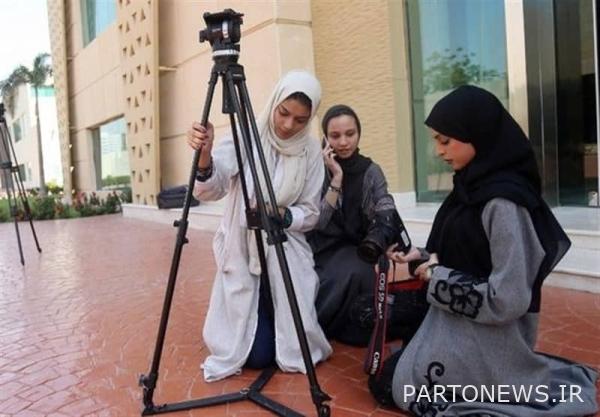
This filmmaker added: Of course, one of the significant policies that can greatly help the development process of the country’s film industry is the issue of the film market, which, especially in the region, can be an unimaginable help to young Saudi filmmakers and accelerate their growth.
According to this cinema activist, joint cooperation and film production with well-known companies in the cinema field is a point that young Saudi filmmakers have seen and used well in the past 5 years, because when a joint project between two The hidden half of the country is that the film market reaches the box office of both countries automatically, which can guarantee the income of the production group and encourage them to continue the film production process in the following years.
What do the statistics say?
Anyway, based on the statements of those involved in the seventh art of Saudi Arabia and some evidence available in the regional and international media, we see that the film industry in this country has continued its upward trend during the last five years, and estimates indicate a logical upward trend for the current year as well.
In order to reach the reality of the film industry of this country as well as the estimates of the upcoming horizons of the seventh art or the Saudi film industry in the coming years, it is enough to pay special attention to the Middle East box office income after the implementation of the new Saudi film policies.
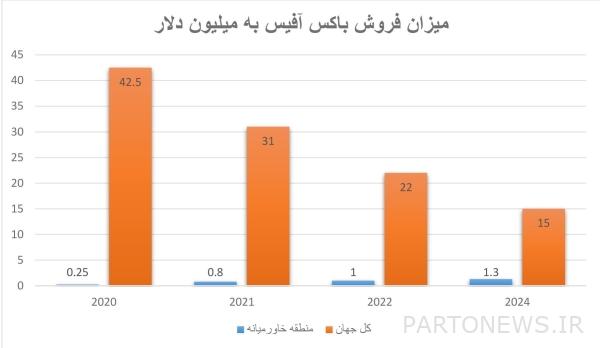
According to the official statistics of the Middle East box office income, the annual income of cinemas in this region in 2021 has been recorded at 800 million dollars, which reached a little more than 1 billion dollars last year, and estimates show that next year this figure will be about It will also experience 1.3 billion dollars, which according to the opinion of critics and international cinema experts is the best process of improvement of the industry after the corona pandemic in the entire global village.
An interesting point to note is that based on the research conducted by the non-profit organization Omida during the fourth Meta Film Festival in Dubai, the revenue of cinemas in the region in 2020 was only 250 million dollars, which compared to the record of 1 billion dollars last year, which means a 400% growth. which has not been experienced in almost any part of the world. Of course, this significant contrast is experienced in the trend of statistics related to the Middle East box office compared to other parts of the global village, while the total income of the world film industry last year decreased by 64.7% from the figure of 42.5 billion dollars in 2019 to a figure equivalent to 15 billion dollars. .
This institute also believes that based on the data it has from the sales of cinemas in the cooperation region of the Persian Gulf, Jordan and Lebanon, the total sales of cinemas in the mentioned regions will reach 1.3 billion dollars in 2024, while only 5 years ago, in 2019, only 600 million dollars of sales were registered in the cinema industry of the region.
Some experts of Omida Institute, who have researched the sales revenue of cinemas in the member countries of the Persian Gulf Cooperation, Lebanon and Jordan, pointing to the significant growth of the entertainment industry in the mentioned regions, believe that the growing trend of the cinema industry in these countries is due to the activity of 500 representatives and experts in The field is filmmaking.
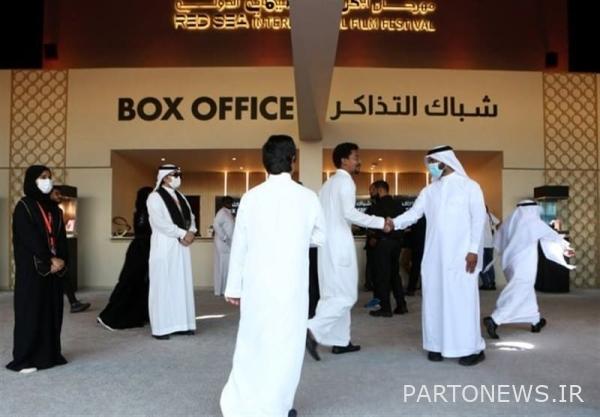
Leila Messinai, the manager of a film production company in the United Arab Emirates and the organizer of major film events in this field, says: One of the most important reasons related to the significant growth in the income of cinemas in the countries of the Persian Gulf Cooperation, Lebanon and Jordan is the issue of the youth of the population in these areas. This group is interested in spending money to watch movies and go to the cinema, while in western and developed countries, the policies are exactly the opposite, because the platforms are trying to make the users watch their favorite movies and series at home or in the subway. to see
Messinai also believes that the growth of the cinema industry in the Middle East is also influenced by the economic diversification plan of the governments of the Persian Gulf Cooperation Council, especially Saudi Arabia, to reduce dependence on oil, which by the way, the cinema, entertainment and leisure sector has a suitable field for this purpose and ultimately caused the growth of this sector in the next few years.”
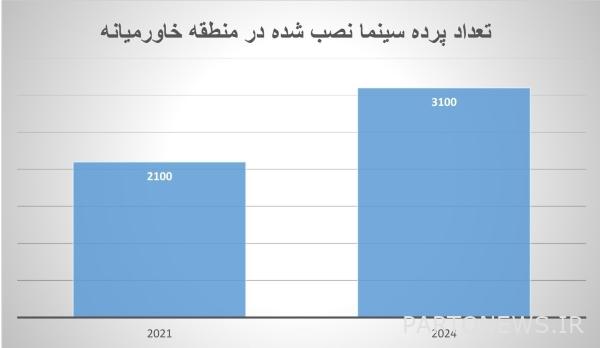
Meanwhile, according to this research, the countries of the Persian Gulf Cooperation Council, Jordan and Lebanon, will see the addition of about 1000 cinema screens in the next three years, which will increase the total number of screens from 2100 in 2021 to 3100 by the end of 2024. And the interesting thing to note here is that nearly half of the 3100 cinema screens in question are based in Saudi Arabia, which is known as the largest market for the growth of the cinema industry.
///.

